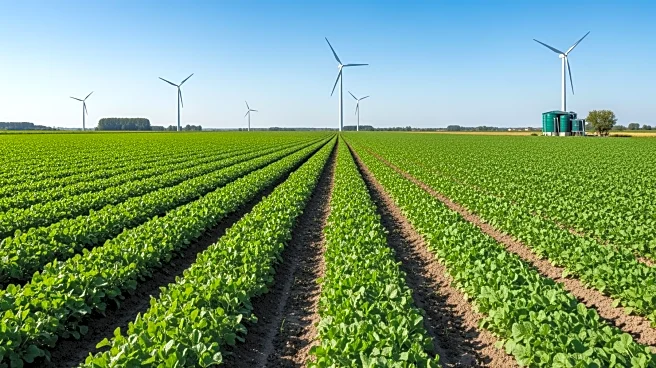What's Happening?
India's agriculture sector is transitioning towards sustainable and climate-resilient practices, according to Sanjay Sethi, National Technical Coordinator at the FAO. Integrated nutrient and pest management,
along with climate-resilient technologies, are reducing chemical dependency while maintaining productivity. Government incentives, such as Direct Seeding of Rice (DSR), are encouraging diversification into climate-resilient crops. Technological integration in farming ensures healthier food closer to organic standards. Farmer education and awareness are crucial for effective application of new technologies.
Why It's Important?
The shift towards sustainable agriculture in India is vital for addressing climate change and ensuring food security. By adopting climate-resilient practices, farmers can reduce chemical use and improve efficiency, leading to healthier food and better environmental outcomes. Government support and incentives play a key role in promoting sustainable farming, which can enhance productivity and profitability. The focus on farmer education highlights the importance of knowledge in driving successful adoption of new technologies.
What's Next?
As more farmers adopt sustainable practices, India's agriculture sector may see increased productivity and reduced environmental impact. Continued government support and incentives could further encourage diversification into climate-resilient crops. The emphasis on farmer education may lead to improved application of technologies and better outcomes for farmers and consumers.
Beyond the Headlines
The transition to sustainable agriculture in India reflects broader global trends towards environmentally friendly farming practices. By reducing chemical dependency and promoting climate resilience, the initiative supports long-term sustainability and food security. The focus on education and awareness underscores the importance of empowering farmers to drive change.










